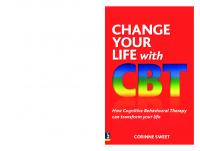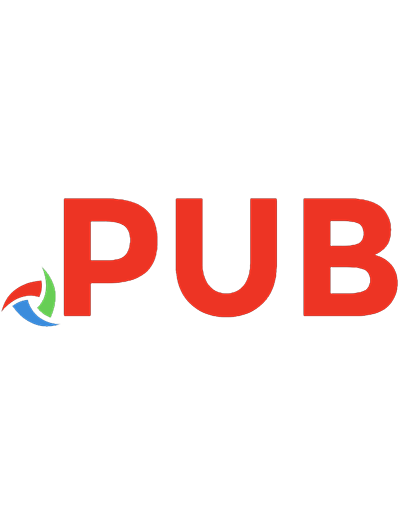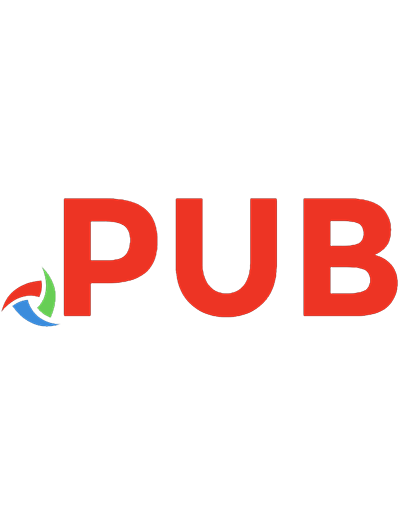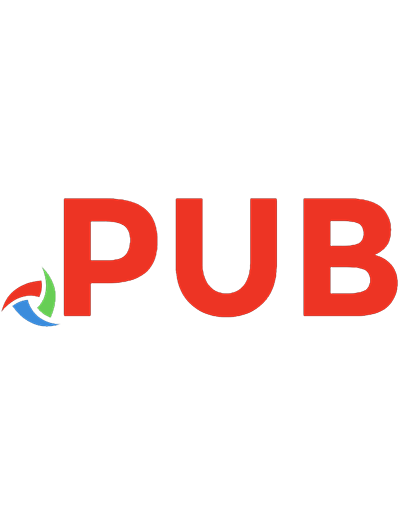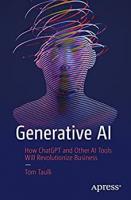Democratization of Expertise: How Cognitive Systems Will Revolutionize Your Life 0367229641, 9780367229641
We create technology enabling us to do things never before possible and it ultimately changes the way we live, work, pla
257 96 16MB
English Pages 208 Year 2020
Table of contents :
Cover
Title Page
Copyright Page
Preface
Acknowledgements
Contents
1. When Things Become Democratized
1.1 Adoption of Technology
1.2 Revolutions
1.3 The Nature of Revolutions
1.4 The Cognitive Systems Revolution
2. The Coming Cognitive Augmentation Era
2.1 Deep Learning/Machine Learning
2.2 Big Data
2.3 Internet of Things
2.4 Natural Language Interfaces
2.5 Open Source AI
2.6 Cloud-Based Services
2.7 Social Media
2.8 The Connected Age
2.9 The Cognitive Systems Era
3. A Brief History of Human Augmentation
3.1 Technology Creates New Kinds of Workers
3.2 Human Cognitive Augmentation
3.3 The Human/Cog Ensemble
3.4 The Cognitive Process
3.5 Cognitive Work and the Augmentation Factor
3.6 Cognitive Power
3.7 Cognitive Accuracy and Cognitive Precision
3.8 Levels of Cognitive Augmentation
3.9 Summary
4. A Brief History of Artificial Intelligence
4.1 The Dartmouth Conference
4.2 Milestones in Artificial Intelligence
4.3 Machine Learning
4.4 Game Playing in Artificial Intelligence
4.5 Chatbots
5. The Nature of Expertise
5.1 The Turing Test and Searle’s Chinese Room
5.2 Chunks
5.3 Types of Knowledge and the Knowledge Level
5.4 Bloom’s Taxonomy
6. Cognitive Architectures
6.1 Genealogy of Cognitive Architectures
6.2 General Problem Solver
6.3 Reflexive/Tropistic/Instinctive Agent
6.4 Model-Based Reflexive/Hysteretic Agent
6.5 Goal-Based/Knowledge-Level Agent (Reasoning Agent)
6.6 Utility-Based/Knowledge-Level Agent (Rational Agent)
6.7 General Learning Agent (Adaptive Agent)
6.8 Evolutionary Agent (Evolving Agent)
6.9 EPIC
6.10 ACT-R
6.11 CLARION
6.12 Soar
6.13 Soar/Formal Model
6.14 Standard Model of the Mind
6.15 Subsumption Architecture
6.16 Emotion Machine—Model 6
6.17 Genesis Architecture
7. Synthetic Expertise
7.1 Requirements for Expertise
7.2 The Knowledge Level Description of Expertise
7.3 The Expertise Level
7.4 The Expertise Level Description of Expertise
7.5 The Model of Expertise
7.6 The Soar Architecture for Expertise
7.7 Synthetic Expertise: The Human/Cog Ensemble
7.8 Composite Activities
7.9 Cognitive Augmentation
8. Synthetic Teachers
8.1 Intelligent Tutoring Systems
8.2 Teaching Styles and Pedagogy
8.3 The Synthetic Teacher Model
8.4 Synthetic vs. Artificial Teachers
8.5 Subject-Oriented Teacher Cogs
9. Synthetic Friend/Therapist
9.1 Conversational Chatbots
9.2 The Synthetic Friend Model
9.3 Virtual Diaries
10. Synthetic Elderly Companions
10.1 Elder Models
10.2 Activity Models
10.3 Emotional/Mood Models
10.4 Task Models
10.5 Episodic Memory and Diagnostic Conversation
10.6 Distributed Sensors
10.7 Interactive Smart Mirror Displays
10.8 Augmented and Mixed Reality
10.9 Gait/Body Language Analysis
10.10 Elder Care Research
11. Synthetic Colleagues
11.1 Enhancing Productivity
11.2 Artificial Entertainers, Lawyers, Politicians
11.3 The Personal Cog Revolution
11.4 The Synthetic Colleague Model
11.5 Social and Professional Network Assistant
11.6 Conference and Journal Publications and Grants Assistant
11.7 Multi-Modal Interface
11.8 Publication Finder
11.9 Summarizer, Assimilator, State of the Art
11.10 Question Answering
11.11 New Work Updates
11.12 Remote Cog/Cog Collaboration
11.13 Semi-Autonomous Learning
11.14 Theory Assistant, Idea Explorer
11.15 Synthetic Collaboration
12. Autonomously Generated Knowledge
12.1 Autonomous Knowledge Discovery in Healthcare
12.2 Autonomous Knowledge Discovery in Business and Military
12.3 Autonomous Knowledge Discovery in Personal Lives
12.4 Automated Discovery
12.5 Intellectual Property Ownership
13. The Democratization of Expertise
Bibliography
Index


